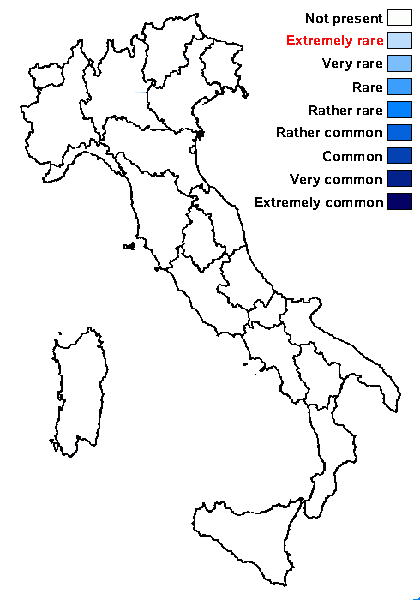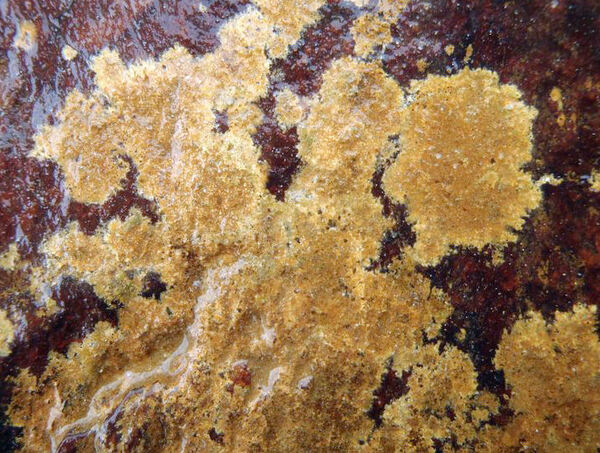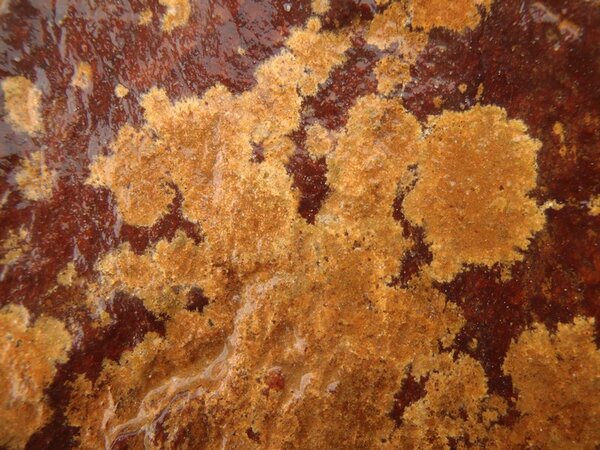Gyalidea subscutellaris (Vězda) Vězda
Folia Geobot. Phytotax. Bohemoslov., 1: 327, 1966. Basionym: Gyalecta subscutellaris Vězda - Biológia, Bratislava 15: 173, 1960
Synonyms:
Distribution:
Description: Thallus crustose, thinly episubstratic, brownish green, darker and less evident when dry, subgelatinous when wet, continuous. Apothecia lecideine, subsessile, 0.2-0.4 mm across, with a pale brown to finally brown-black (paler when wet), strongly concave to finally flat disc, and a thick, darker brown proper margin. Proper exciple brownish in outer part, colourless within; epithecium colourless to very pale yellowish brown; hymenium colourless, 90-120 µm high, I+ yellowish to reddish brown; paraphyses simple, slender, c. 1 µm thick, not thickened at apex; hypothecium colourless. Asci (4-)8-spored, thin-walled, apically thickened, with a small ocular chamber. Ascospores muriform, hyaline, ellipsoid, with a thin halo, (15-)17-20(-22) x 7-10(-12) µm. Photobiont chlorococcoid, Cystococcus/Leptosira-like. Spot tests: K-, C-, KC-, P-, UV-. Chemistry: without lichen substances.Note: on acid to subneutral soil and plant debris; rare in the European orobiomes, with a single record from the Alps (Carinthia, Austria); to be looked for in Italy.
Growth form: Crustose
Substrata: soil, terricolous mosses, and plant debris
Photobiont: green algae other than Trentepohlia
Reproductive strategy: mainly sexual

Predictive model
Growth form: Crustose
Substrata: soil, terricolous mosses, and plant debris
Photobiont: green algae other than Trentepohlia
Reproductive strategy: mainly sexual

Predictive model
 INDEX FUNGORUM
INDEX FUNGORUM
 GBIF
GBIF




